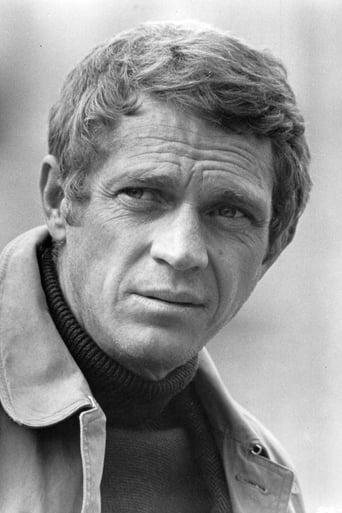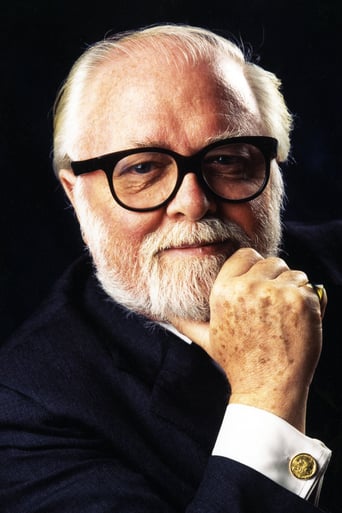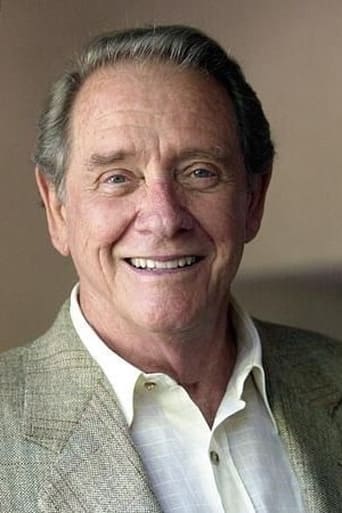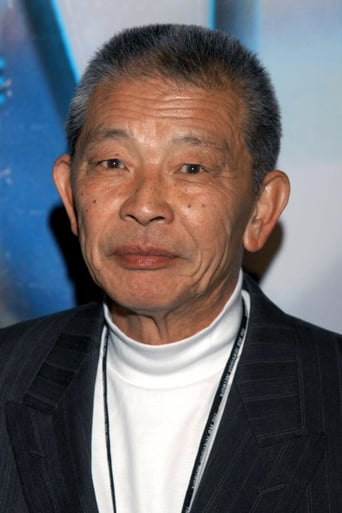Kattiera Nana
I think this is a new genre that they're all sort of working their way through it and haven't got all the kinks worked out yet but it's a genre that works for me.
Invaderbank
The film creates a perfect balance between action and depth of basic needs, in the midst of an infertile atmosphere.
Ava-Grace Willis
Story: It's very simple but honestly that is fine.
classicsoncall
"The Sand Pebbles" is the film that cemented Steve McQueen's status as a leading man in Hollywood, one in which his character is the embodiment of a loner, a rebel at odds with himself and his environment. His portrayal is so effective because it's grounded in his own upbringing. Abandoned by a self absorbed father at the age of four months, and with an alcoholic mother who had little time for him, McQueen was raised by a succession of relatives and eventually wound up in a reform school. His early bitterness with the world is reflected in his performance as Jake Holman, more at home with inanimate objects than with human beings. He finds comfort in the machine room of the San Pablo, a naval gunboat patrolling the Yangtze River in 1926 China.There's a telling moment in the movie that's quite bittersweet; it's when Holman buys a caged bird from a street vendor for missionary Shirley Eckert (Candice Bergen). Holman explains that the bird is meant to be freed from it's cage. As Miss Eckert opens the door of the cage releasing the bird, it's gone in an instant, and the viewer is visually confronted with the notion of freedom and what it might mean to the population of 1920's China, a country of factions in a period of upheaval trying to find a way to unite.Through it all, the mission of the San Pablo is to remain neutral under the supervision of Captain Collins (Richard Crenna), a no nonsense commander who takes his duty seriously, and experiences a moment of personal crisis after he faces down both his own men and Chinese nationalists who demand that he turn Holman over to them following an incident on the mainland. It's at this point in the film that motivations and actions of the crew become a bit muddled to my thinking, as the crew of the San Pablo in turn defy the Captain, and then completely submit to his authority without further consequence. This was a confusing aspect of the story for me.Shot entirely in Taiwan, the making of the film was plagued with problems related to weather and equipment loss, extending the original eighty day filming schedule to seven months. The re-creation of the San Pablo into a 1920's era gunboat cost two hundred fifty thousand dollars, and what's fascinating to me was the way it was made to look as a worn out, dilapidated rust bucket. "The Sand Pebbles" went on to garner a fist full of Oscar nominations including Best Picture and Best Actor for McQueen, who lost out to Paul Scofield in "A Man For All Seasons". It's one of those pictures that when viewed today in relation to it's peers of the day, it becomes apparent that the major Academy Awards for that year went to the wrong movies.
soneill
The Sand Pebbles, for all its sweep and pageantry, is at its core a story of the cost of human cruelty, bigotry and arrogance, and indifference to the pain inflicted by these. Just about everyone in the story is trapped--Captain Collins by his stiff-necked devotion to intangibles like honor and duty, even when this devotion drives him to ignore his innate decency, at great cost to himself and others. Po-Han, who just wants to learn how to be a ship's engineer, tortured by Communists who want to punish him for what they see as casting his lot with the enemy. Maily, viewed by the brutish sailors and the madam of the whorehouse as chattel, an inhuman commodity to be rented by the hour until she is worn out and discarded. She cannot be redeemed even by the brave, clumsy tenderness of Frenchy, who gives his life for the privilege of being with her. The missionaries, who have no argument with anyone, being forced to take sides in a stupid and unnecessary conflict. And of course, Jake Holman, the rebel with a soft heart he wishes to God he didn't have but which makes him a better man than many others. He has the wisdom to take people not in bunches but on a per-case basis--he doesn't assume that just because somebody is Chinese, he's evil or stupid or uncivilized. The comradely ease he develops with Po-Han, his unquestioning acceptance of the romance between Frenchy and Maily despite knowing the perils they face, his refusal to brutalize himself to endear himself to some of his more Cro-Magnon shipmates are what lead to his tragic and wasteful death. Much as I loved this movie, I don't think I could get through another viewing. But if you haven't seen it, do yourself a favor and get your hands on a copy. Just make sure you have plenty of Kleenex.
rejj2369
I love the music that is so reflective in this underrated sleeper, filmed on location in Taiwan and Hong Kong. Inside this delicate war epic lies a touching love story that is one of the best and most honest I have ever seen. The acting is good all around, especially Steve McQueen who is absolutely perfect as the lonely sailor who is torn between duty and conscience. His eyes and facial expressions say so much that you want to know more about his character. McQueen exudes a sadness that is very appealing.My only gripe is the way the sailors talk to the Chinese coolies. But I guess the director wanted to keep the movie authentic because this was how people talked back then. Because of this, the movie feels slightly outdated. However, all is forgiven because of McQueen's gentle and sympathetic performance.It is one of those movies that have an inner, quiet beauty, and it is perfectly captured by the romance between Steve McQueen and Candice Bergen.This is one of my favorite movies.
Vic Lange
I can't claim to know anything about the history of the Sand Pebbles, and I only know a bit about the actual historical period it took place in, but I would imagine that this story made some people unhappy. It's set in a time in history where America was someplace it probably didn't belong, but of course, that didn't make the American soldiers in China villains.Set during the time of Western occupation of China in the early 20th century, the movie does its best to portray its subjects fairly, with nasty and kind Americans and cowardly, duplicitous, and noble Chinese. Nevertheless, it's hard to come away from this movie without seeing the racist mindset from which it comes. I don't mean this as an insult, necessarily, as a piece of film history it can only be judged by the standards of its time. As a piece of entertainment, however, its moral discoveries that "the Chinese are perfectly capable of learning how American technology works!" and "they're just trying to get ahead, look how reasonable they are when they can speak English well!" are basically the stuff of children's cartoons these days.These flaws and the awkwardly antisocial nature of Steve McQueen's character make the first two-thirds of the movie drag in parts, no matter how good the production values are (they're very good). That still isn't quite enough to drag down a very strong ending, however, where the path the movie takes manages to keep you guessing until the very end.







